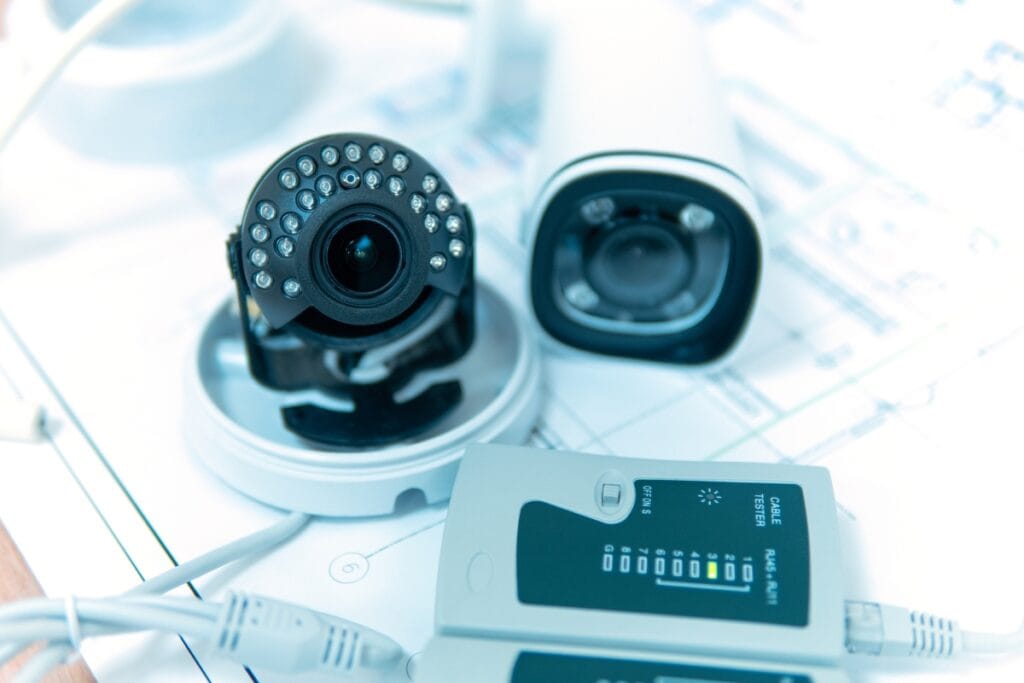In the complex world of family law, where emotions run high and disputes can significantly impact lives, surveillance plays a crucial role in uncovering truths and supporting legal outcomes.
Whether it’s verifying custody arrangements, uncovering hidden assets, or gathering evidence in cases of infidelity, surveillance offers a discreet and reliable way to obtain critical information.
By providing objective insights, it can help attorneys build stronger cases and ensure fair resolutions. In this guide, we’ll explore the role of surveillance in family law investigations, highlighting how it contributes to protecting rights, resolving disputes, and bringing clarity to sensitive situations.
Whether you’re navigating a legal matter or simply curious about the process, discover why surveillance is an indispensable tool in family law investigations.
How Surveillance Plays a Key Role in Family Law Investigations
The Fundamentals of Surveillance in Family Law Investigations

Surveillance is a cornerstone of family law investigations, providing valuable evidence to support legal proceedings. It involves discreetly observing individuals and documenting their actions to gather factual information.
In family law cases, surveillance is commonly used to address concerns related to child custody disputes, spousal support evaluations, or accusations of infidelity or misconduct. The goal is to uncover evidence that clarifies the situation and supports a fair resolution.
For instance, in child custody cases, surveillance can help determine whether a parent is providing a safe and nurturing environment. Evidence of neglectful or harmful behavior could significantly influence custody arrangements. Similarly, in cases involving spousal support, surveillance may uncover evidence of concealed income or cohabitation that could impact support calculations.
Adhering to legal and ethical standards is vital in family law surveillance. Private investigators must comply with local and federal laws governing privacy and ensure they do not violate individuals’ rights.
This includes avoiding trespassing, unauthorized recordings in private spaces, or other actions that could render evidence inadmissible in court. Proper authorization, such as court orders, can provide a legal framework for surveillance activities.
Technology plays an essential role in modern surveillance techniques. Tools such as GPS trackers (where permitted), high-resolution cameras, and digital databases enhance an investigator’s ability to collect accurate and actionable data. However, these tools must be used responsibly and within legal constraints to ensure credibility and ethical integrity.
Legal and Ethical Considerations Surrounding Surveillance Practices

Surveillance in family law investigations is a sensitive process that requires strict adherence to legal and ethical guidelines. Investigators must ensure their practices comply with all applicable federal, state, and local laws.
This includes understanding privacy regulations, such as those governing electronic monitoring and recording, to avoid any actions that could result in inadmissible evidence or legal repercussions. For instance, recording audio without consent is illegal in many jurisdictions, even if the recording takes place in a public setting.
Additionally, consent requirements vary depending on the method of surveillance and the context. In some cases, such as using GPS tracking devices, explicit authorization or a court order may be required to remain within legal boundaries. Failing to obtain proper authorization could lead to accusations of trespassing or unlawful monitoring.
Ethical considerations are equally critical to ensuring the credibility and integrity of the investigation. Investigators must prioritize professionalism and discretion, avoiding actions that could be perceived as harassment or intimidation. For example, repeatedly following an individual in a way that makes them feel unsafe or threatened could undermine the investigation and expose the investigator to legal liability.
Transparency with clients is another important ethical aspect. Investigators should provide clear explanations of what surveillance entails, its limitations, and the potential outcomes. They must also avoid making guarantees about the findings, as this could create false expectations.
Types of Surveillance Techniques Employed in Family Law Investigations

Family law investigators utilize various surveillance techniques to gather evidence effectively. These techniques may include physical surveillance, electronic monitoring, background checks, social media monitoring, and interviews with witnesses.
Physical surveillance involves discreetly observing individuals’ activities and interactions in person. It may include following someone to document their behavior or capturing photographs or videos as evidence.
Electronic monitoring utilizes technology such as GPS tracking devices or hidden cameras to gather information about an individual’s whereabouts or actions. This can provide valuable evidence regarding a person’s lifestyle choices or patterns of behavior.
In addition to these techniques, investigators may also conduct background checks to gather information about an individual’s past, including criminal records or financial history. Social media monitoring has become increasingly relevant in family law investigations, as it can provide insights into a person’s activities and relationships.
Interviews with witnesses are another essential aspect of surveillance in family law investigations. Investigators may speak with friends, family members, or acquaintances to gather information that can support or refute claims made during the legal proceedings.
Challenges Faced by Investigators During Surveillance Operations

Surveillance operations play a pivotal role in Family Law Investigations, allowing investigators to gather crucial evidence and information to support legal cases. However, these operations come with their own set of challenges that investigators often face in the field.
- Ensuring Safety: Investigators must prioritize their safety during surveillance operations, especially in potentially dangerous situations. Being aware of potential risks and having contingency plans in place is essential to mitigate any safety concerns. In conclusion, while surveillance plays a crucial role in Family Law Investigations, investigators encounter various challenges that require them to be adaptable, discreet, and well-prepared to overcome obstacles in the field.
- Maintaining Discretion: One of the primary challenges faced by investigators during surveillance operations is the need to maintain discretion. Family law cases are sensitive, and any compromise in maintaining secrecy can jeopardize the entire investigation.
- Adapting to Various Environments: Investigators must be adept at blending into different environments to avoid raising suspicion. Whether it’s observing a subject in a busy public place or monitoring them in a rural setting, the ability to adapt is crucial.
- Long Hours of Observation: Surveillance operations can often involve long hours of observation, requiring investigators to remain focused and alert for extended periods. This can be mentally and physically taxing, leading to fatigue and decreased efficiency.
- Technological Challenges: With advancements in technology, investigators must stay updated on the latest surveillance equipment and techniques. Technical failures or malfunctions can occur, hindering the collection of evidence.
- Legal Limitations: Investigators must operate within the boundaries of the law, ensuring that their surveillance activities are conducted ethically and legally. Familiarity with relevant laws and regulations is essential to avoid any legal repercussions.
- Dealing with Unforeseen Situations: Surveillance operations can be unpredictable, with investigators often facing unforeseen challenges such as changes in the subject’s routine or unexpected obstacles that hinder their observations.
- Maintaining Objectivity: It is crucial for investigators to maintain objectivity during surveillance operations, focusing on gathering factual evidence without being influenced by personal biases or assumptions.
Balancing Privacy Rights with the Need for Surveillance in Family Law

While privacy rights are fundamental, especially in family matters, the need for surveillance is justified when it serves the best interests of the child or the vulnerable party involved. Balancing these rights is essential to ensure a fair and just outcome in family law proceedings.
Family law investigations often require a multifaceted approach, where surveillance complements other investigative techniques. By combining surveillance with interviews, document examination, and expert testimonies, a comprehensive picture can be painted for the court to make informed decisions.
In cases of suspected abuse, neglect, or misconduct, surveillance can be the key to uncovering the truth and safeguarding the well-being of those involved. This aspect highlights the crucial role that surveillance plays in protecting the vulnerable and ensuring justice prevails in family law matters.
The Impact of Surveillance Findings on Court Decisions and Settlements

The findings obtained through surveillance can have a significant impact on court decisions and settlements in family law cases. They provide tangible evidence that can support or refute claims made by the parties involved.
Surveillance findings can help establish patterns of behavior, reveal hidden assets, or expose misconduct. This information is crucial in determining child custody arrangements, spousal support obligations, or division of assets.
Courts consider surveillance evidence alongside other factors such as witness testimonies, financial records, and expert opinions when making decisions. The weight given to surveillance findings may vary depending on their relevance, admissibility, and credibility.
Concluding Thoughts: The Intricacies and Importance of Surveillance in Family Law
Surveillance plays an invaluable role in uncovering the truth and supporting family law cases with accurate, reliable evidence. Whether it’s child custody battles, alimony disputes, or uncovering hidden assets, having skilled professionals handle your investigation ensures a thorough and ethical approach.
At 4Horsemen Investigation & Security, we specialize in delivering discreet and effective surveillance services tailored to your needs. Call us at 404-680-0860 or visit our website to schedule a free consultation and take the first step toward clarity and resolution.






